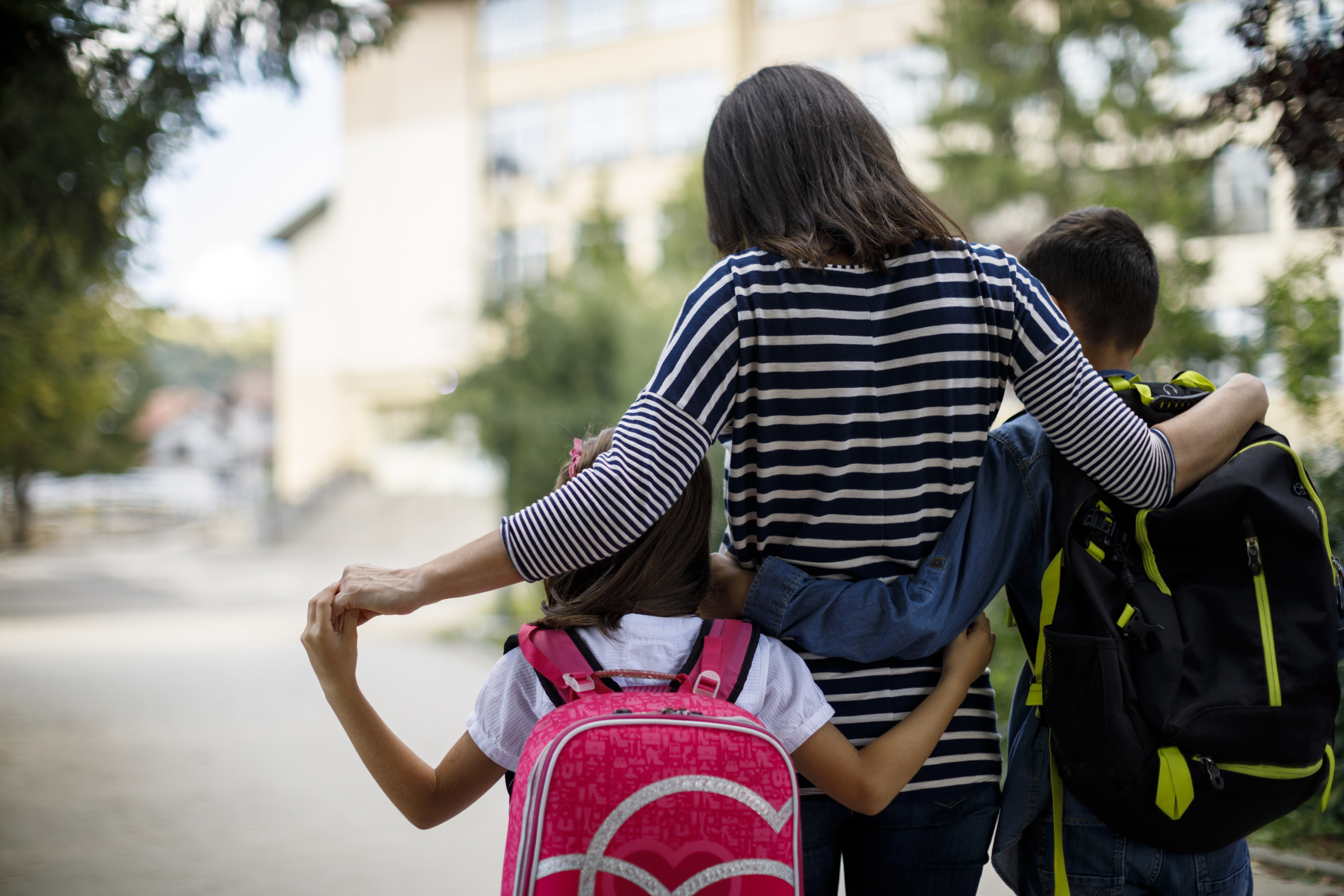“We’ve patched things up!” my daughter texted me. Phew! Glad that’s over! I thought. She’d been upset the past few days, working through a conflict with friends. Minutes later, my other daughter burst into my office crying about her physics grade. I sighed and thought, Can’t you guys be happy for just one day so I can be happy for one day?
Some people say that “you’re only as happy as your least happy child.” And I think that could be true—if we allow it to be. But I also believe we can learn to be OK whether or not our kids are OK, and this will not only give us emotional freedom but will allow our kids to express feelings without worrying about bringing us down. Here are 5 ways to do that.
1. Stop taking responsibility for your child’s emotions.
It’s no wonder we feel responsible for our kids’ feelings. After all, we’ve been responding to the cries of our children since the moment they were born, tiny and helpless in our arms. When they cried, we needed to change their diapers or feed them and make them “happy” again.
But as our kids get older, responding to their cries in the same way only holds us emotionally bound, limiting our kids’ ability to take responsibility for their own emotions. Your child is no longer a helpless infant. He’s just living life, and the growth process is going to involve all kinds of feelings and situations. His choices and emotions are his to deal with as he lives and learns, coming to us for guidance when needed.
2. Ask yourself: Is this my feeling or her feeling?
One of the clear signs that you’re only as happy as your least happy child is that it’s hard to determine where your kids’ feelings end and yours begin. If we don’t separate the two, we’ll be exhausted, waiting for every child in our family to be happy before we allow ourselves to be happy. So it’s good to ask: “Is this my feeling or hers?” If you still aren’t sure, take a step back and look at the cause of your emotions—is this something that happened to me or to my child?
My son was invited to join the baseball team of his dreams. Two months later, the team fell apart. He was angry and sad, and I found myself even angrier and sadder than he was. But the more I got caught up in my emotional response, the less I could effectively guide him in his next steps. While it’s natural to empathize with our kids, realizing that these are their stories, lives, and feelings allows us to guide them more objectively.
3. Ask yourself: Am I teaching or taking?
My daughter was anxious the other day when she realized she’d left something important in her locker. She begged me to go get it. (I work in the school’s office and have a key to the building.) It was late, and we live 30 minutes from school. In this situation, I can teach from the problem, or I can take the problem upon myself.
The temptation for me to say yes and take on my child’s problem is strong because it relieves her sad feelings (and perhaps a low grade). However, if I do this, I’m also taking away her consequence for not being responsible with her things. When we can learn to make decisions based on the bigger picture, we can allow our kids’ momentary sadness to serve a greater purpose: teaching them something valuable.
4. Believe in something greater.
It hurts my heart to see my child suffer. But I believe there is a greater purpose to suffering. First, I believe God uses suffering to help our kids mature. A verse in the Bible says, “Suffering produces endurance, and endurance produces character” (Romans 5:3–4). And second, I believe suffering grows our kids into stronger people. This helps me to see my kids’ suffering as purposeful.
Sometimes, I even pray, “Dear God, I know you love my child even more than I do. I know you see every detail of his life, and you know how hard this is for him! But I also know that your plans are greater than ours, and you see the whole picture. I pray that you will use the hard feelings and tough situations to produce strength, endurance, and character in him. We know you use all things for our good. Amen.”
5. Rediscover what makes you happy, and do it.
What’s your favorite TV show? If you just said Bluey, it’s very possible that you need to reconnect with what makes you—your adult self—happy. Amidst all the years of catering to our children, we can sometimes forget what we like and who we are. What inspires you, makes you laugh, or gets you moving? When you find yourself too wrapped up in your child’s feelings, start baking your favorite pie or listening to that artist you like. And bonus: your happiness may draw your child in and bring a smile to her face, too.
Do you agree or disagree that you’re only as happy as your least happy child? How do you separate your emotions from your child’s sad or negative feelings?










